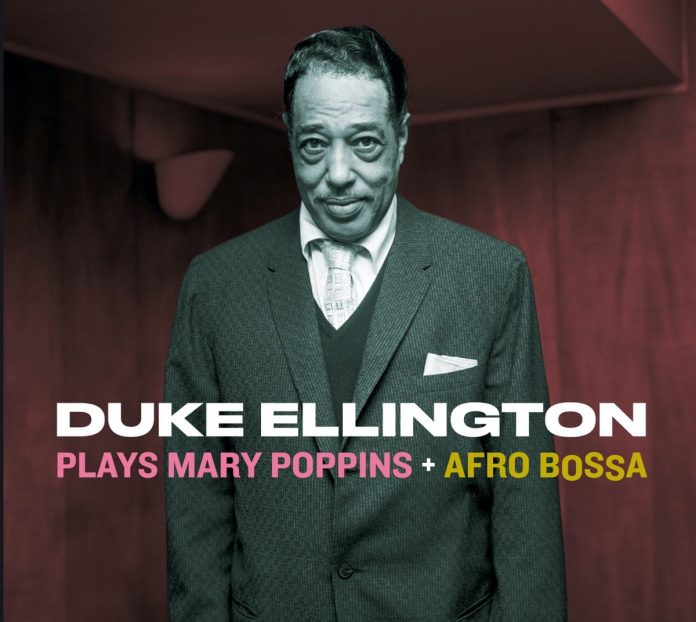Master of intriguing arrangement, and presiding over a multi-talented orchestra, the Duke frequently delighted in transforming even the most unlikely material into memorable jazz. The original musical score for Mary Poppins, penned for the Disney family film, aimed to be jolly, sentimental or whimsical, with a catchy melodic appeal, which Ellington respected and enhanced.
From the opening Spoonful Of Sugar, when Hodges floats along serenely over a foot-tapping shuffle rhythm, we know we’re in the safest of hands for jazz styling. The star soloists all get a spot – Hamilton elegant in Feed The Birds and Perfect Nanny, Brown and Williams muted and wailing expressively in Let’s Go Fly A Kite and Jolly Holiday, Carney majestic and sonorous in Stay Awake, and Gonsalves cutting loose on the closing upbeat Supercali…(etc). Sam Woodyard’s skilled drumming effectively varies the rhythmic patterns throughout.
Though not widely regarded as amongst Ellington’s most important work, the album has very pleasing melodic appeal, the material reworked strikingly with the unmistakable Ducal touch.
In marked contrast, the Afro Bossa album is tougher, darker listening. It was conceived as a suite but the 12 shortish compositions by Ellington and Billy Strayhorn suggest diverse exotic images, rather than the extended development of a theme, and identify with mixed African and Latin influences. In mood it’s a far cry from the joyous energy of Duke’s “jungle music” of Cotton Club days. The music is often sombre, mysterious or dramatic. The section scoring is sometimes tinged with bleak dissonance and the orchestra prowls warily, often conveying tension or melancholy. Woodyard’s outstanding and versatile drumming again plays a major part, with a range of Latin rhythms.
Star soloists are featured throughout, Lawrence Brown in Pyramid, co-written by Ellington with trombonist Juan Tizol back in 1938. Purple Gazelle was recorded as Angelica on Duke’s album with John Coltrane. Two random bonus tracks contribute less challenging, more routine commercial recordings. Hamilton’s clarinet punts us gently along Moon River.
So, typically creative and contrasting music, an absorbing tapestry of orchestral jazz from the suave maestro and his stellar orchestra of the 1960s.
Discography
[Plays Mary Poppins] (1) A Spoonful Of Sugar; Chim Chim Cher-ee; Feed The Birds; Let’s Go Fly A Kite; Stay Awake; I Love To Laugh; Jolly Holiday; Sister Suffragette; The Perfect Nanny; Step In Time; The Life I Lead; Supercalifragillisticexpialidocious; [Afro Bossa] (2) Afro Bossa; Purple Gazelle; Absinthe; Moonbow; Sempre Amore; Caliné (Silk Lace); Tigress; Angu; Volupté; Bonga; Pyramid; Eight Veil; (3) Hello Dolly; (4) Moon River (78.49)
Duke Ellington And His Orchestra on all tracks. Collective personnel includes Cootie Williams, Cat Anderson, Ray Nance (t); Lawrence Brown (tb); Jimmy Hamilton, Russell Procope, Johnny Hodges, Paul Gonsalves, Harry Carney (reeds); Ellington, Strayhorn (p); Sam Woodyard (d). (1) Chicago, no date. (2) NYC, no date. (3) NYC, no date. (4) NYC, no date.
Essential Jazz Classics 55001















